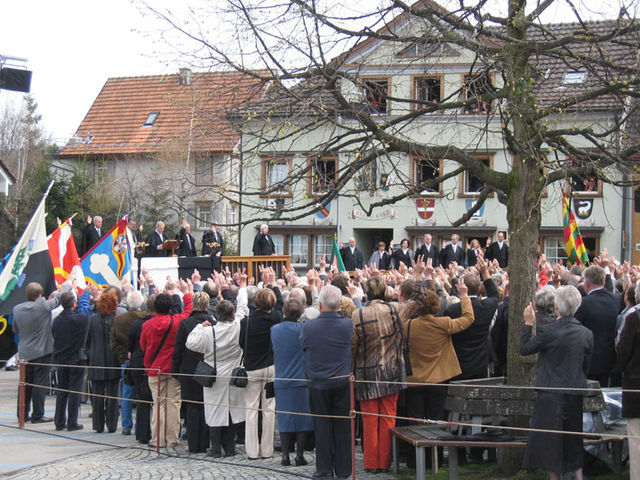form of democracy where people decide on policy directly From Wikipedia, the free encyclopedia
Direct democracy, which is also called pure democracy, is a democracy in which the decisions are not taken by representatives. All decisions are voted on by the people.[1] When a budget or law needs to be passed, then the idea goes to the people. Governments of modern countries rarely make laws this way.

Interest groups would have to change the minds of all people, not just a few representatives. Taxes could not be raised without the permission of the people. The few would not rule the many and the government would not pay representatives salaries. In indirect, or representative democracy, citizens elect representatives to make laws on their behalf. This is what most modern countries have today. Direct democracy makes decisions by majority rule. Representative democracy was made with the idea that representatives would be responsible for the majority's interests while protecting minority rights. People like James Madison believed that direct democracy was bad for minority groups.
Classical Athens was a direct democracy. All citizens voted on major decisions of government. But, to be a citizen, you had to be a free, land-owning, native-born man.
Switzerland has aspects of direct democracy. "Evidence suggests that attendance at assemblies... has always been limited to roughly twenty per cent of the citizenry".[2] The practice is only used in two cantons, Appenzell Innerrhoden and Glarus.
The Federal government of the United States does not use direct democracy but the individual states sometimes make laws by referendum. Some New England towns govern themselves by a town meeting.
Seamless Wikipedia browsing. On steroids.
Every time you click a link to Wikipedia, Wiktionary or Wikiquote in your browser's search results, it will show the modern Wikiwand interface.
Wikiwand extension is a five stars, simple, with minimum permission required to keep your browsing private, safe and transparent.